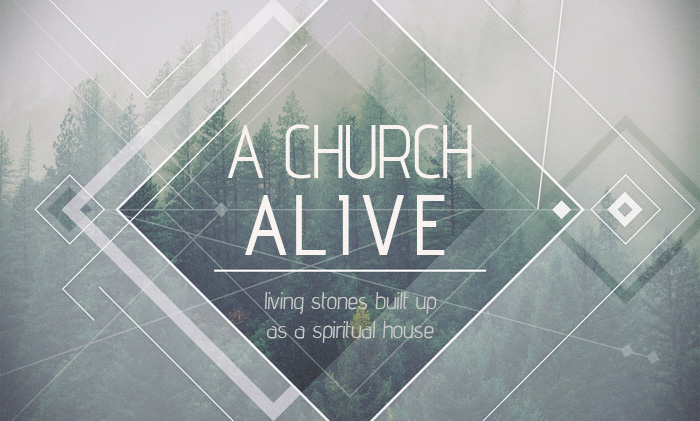Imago Dei Church was planted in January of 2013 with a simple, yet biblical, passion: to glorify God by making disciples of Jesus Christ. We took Christ’s marching orders of Matthew 28:18-20 as our charter. Thus, the matter of first importance was to establish a church culture that acknowledged the lordship of Christ, for He said, “All authority in heaven and on earth has been given to me.” Recognizing this all-permeated lordship of our Savior gave us a few clear mandates to shape our congregation’s life together. I offer them here hoping they might serve fellow pastors in leading ordinary church who seek to passionately glory in our extraordinary God.
The church must herald His gospel.
The gospel of Jesus Christ—the good news that Christ died to save sinners, was buried, rose again three days later, and ascended to the right hand of the Father—is the announcements that gathers Christ’s church. It is not news we perform or enact, but is an announcement we herald. It is not a work we perform, but truth to which we bear witness. Being the lifeblood of Christ’s church the gospel must bear an indelible stamp on all we do. Sometimes this is explicit (like in preaching) and other times it is more implicit (the liturgy). Where the gospel of Christ is, there is life abundant. Where the gospel is heralded, the church becomes a life-giving agent for the nations.
The church must stand on His word.
The second consequence naturally proceeds from the first. How will they hear if someone doesn’t preach? “Faith comes by hearing, and hearing by the word of Christ.” God’s word has given us everything necessary for faith and life. Therefore, the church must be a tangible expression of sola scriptura. We long to see every gathering, formal or informal, be rooted in the word. If God’s word brings life to God’s people we always want to place ourselves next to this life-giving fountain. So God’s word saturates our gathered worship as we sing it, pray it, read it, support it, preach it, and see it.
The church must depend on His spirit.
To rightly situate our lives on the gospel and in the word means we depend on His spirit. Without the Spirit we have no gospel and no word. This dependence is, maybe, most practically seen in the church’s life of prayer. The church that doesn’t pray is a church that thinks the Spirit is an optional power source. We must weekly plead for the enabling and empowering work of the Spirit to flow through the congregation. So we pray often in gathered worship, at our monthly prayer meeting, and try to shepherd IDC in such a way that prayer is peculiarly present in our midst. We want to speak often of Jesus calling to us through His word and His spirit. We pray each week before the sermon for the Spirit to open our eyes to behold wondrous things from God’s word. We rejoice in the Spirit’s work in salvation, illumination, and consecration.
The church must rest in His sovereignty.
If there is any one distinct theological line we cut into the sand it is that the Father, through the Son, and by the Spirit reigns totally sovereign over everything and everyone. Because He is Lord of all He does whatever He pleases. “He has predestined all things according to the counsel of His will.” This truth is the kick drum of the Christian life. It keeps us in time and resonates in the song of each day. And just like every good kick drum does this one leads us to clap our hands—in joy, humility, and love. It is not a doctrine that freezes hearts, but inflames them.
The church must revel in His holiness.
Christ washes His bride with the water of His word in order to present her holy, without spot, blemish, or any such thing. He is perfectly holy and calls us to strive for the holiness without which no one will see the Lord. Banish away all cheap contemporary notions of legalism or moralism. This is God-ordained, Christ-bought, Spirit-wrought, and word-directed holiness. He does it and so we must do it. Let us work harder than anyone for this godliness, recognizing it is simultaneously only because of God’s grace we get to agonize in this supreme delight. We thus practice church discipline, commend obedience, and cherish self-denial. The stance of our members must increasingly be one of the soldier. Christ our captain enlists us into the battle of the ages, with His armor we war against the cosmic forces and heavenly powers in the heavenly places.

